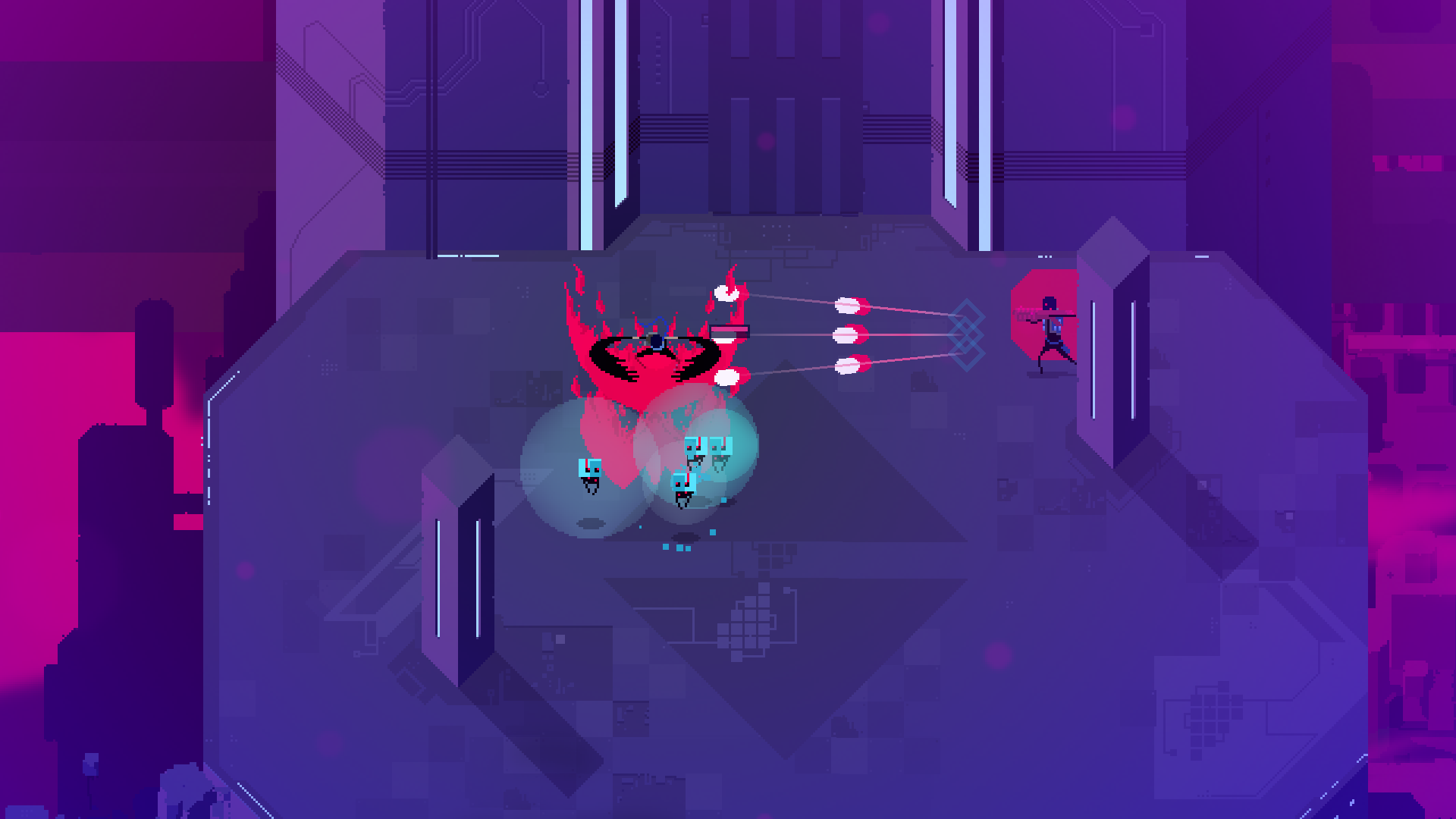Welcome to the second developer interview following the introduction of the new Showcase page! This week, we’ve interviewed Monolith of Minds about their latest game Resolutiion.
Introduce your studio in a few sentences.
We’re Monolith of Minds, two brothers from Germany who set out to tell tall tales of stray heroes and kind monsters.
Introduce your project in a few sentences: description, supported platforms, release date, etc.
Our first game “Resolutiion” was released in May 2020 on Steam, Good Old Games and Nintendo Switch.
Five years in development, Resolutiion tells the story of the soldier Valor and his AI Alibii’s journey through a 2D dreamworld of lovely pixels, dirty jokes and badassemotional tunes, inspired by classic Zelda and similar action-adventure-games.
How did you discover Godot? When did you start using it? Do you have prior experience with other game engines?
We love to rummage in the software world, digging up tools that help us tell our stories better. While we explored some more or less popular engines earlier, we love Free and Open Source Software, so naturally we came across Godot and fell in love with it right from the start.
Why did you choose Godot for your project?
Developing with Godot is very easy. The core functionality can be picked up quickly and the engine is powerful enough to accomplish everything we were looking for in our game. Also the community is awesome and creates plenty of valuable tutorials and guides.
Which parts of the game development process did you enjoy the most while working on your project?
Since we had no previous experience in game-development, learning everything from scratch was the biggest challenge but also the greatest pleasure. Seeing all those tiny splashes of color coming together into forming a full picture certainly was an amazing experience.
Which parts of the game development process did you find the most difficult to apply in your project?
I guess we struggled quite a bit with animation and cut-scenes: these things always seem so simple in your mind, but turn out to be an endless sequence of tiny steps, each one just leading into more uncertainty.
While Godot’s animation editor hits a sweet-spot between accessibility and complexity, we tried to cut corners every time a new scene emerged. After blaming each other for the shitty job, eventually we took a deep breath and put in the handiwork every decent cut-scene demanded.
How has Godot helped you advance on your project? Which aspects of Godot do you consider to be its strength?
We have a fable for Python, therefore can appreciate GDScript a lot. For an iterating workflow the scene-system and its flexibility is a master piece in software design.
How do you find Godot’s multi-platform support, both for the editor and your final project?
Having such a full fetched editor run on Linux was probably a big selling point for us when we started. Also being able to export to all PC platforms, iOS and Android is definitely one of Godot’s strengths.
Which challenges have you encountered when using Godot?
None, haha.
Which features would you like to see in future versions of Godot?
Porting the game to the Nintendo Switch worked out fine, since we had Lone Wolf Technology to back us up. However, so far we haven’t found a way to get the game running on any of the other big consoles, such as PlayStation and Xbox. Better console integration is definitely something we are looking forward to.
Would you use Godot for a future project?
Definitely, yes. Godot’s open source philosophy, fast development cycle and indie-friendly community make it an obvious choice for us. We have already started work on our second video game, and hope to share some first glimpses in early 2021.
Resolutiion is available on Steam, Good Old Games and Nintendo Switch.
